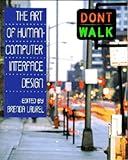To people who have never experienced drugs, grown up in a culture that demonizes them all indiscriminately, have a hard time wrapping their head around what they are/do exactly but are curious about them, I recommend this article by Sam Harris, a great neuroscientist[0]
For a slightly more in depth essay, Aldous Huxley's "Doors of Perception" [1] is a great book, albeit slightly dated.
There are also some extremely interesting synergies between the origins of the computer industry and the psychedelics/California counter culture era. John Markoff's "What the Dormouse Said" [2] is a fantastic read, although it requires knowing about computer history a little bit already. I learned from it that there was scientific research on LSD conducted in Menlo Park, a few blocks away from where I used to live.
There's also a great essay by Timothy Leary about parallels between psychedelics as tools for expanding the human mind and the computer as a tool to enhance the human brain in Brenda Laurel's book "Art of Human Computer Interaction Design". [3]
There's a great essay by Carl Sagan about his experiences using marijuana creatively/intellectually [4].
I had never tried any drugs before moving to California in my 20s, and had grown up in a fairly standard European culture of all drugs = the devil. Some changes occurred, and it turns out there's a really fascinating history and philosophy in there (especially w/ regards to parallels with computer history, as described in the aforementioned book).
[0]: http://www.samharris.org/blog/item/drugs-and-the-meaning-of-...
[1]: http://www.amazon.com/The-Doors-Of-Perception-thINKing/dp/19...
[2]: http://www.amazon.com/What-Dormouse-Said-Counterculture-Pers...
[3]: http://www.amazon.com/The-Art-Human-Computer-Interface-Desig...
The best book on the subject is, in my opinion, "What the Dormouse Said" by John Markoff [0]. It's a fantastic book, although it requires the reader to already have some knowledge of the people and historical events, as it is not meant to be a computer history primer.
But yeah, it's a great book, and a lot of stuff in there might surprise some readers. For instance, I learned that there was LSD research happening a few blocks away from where I used to live in Menlo Park :)
Timothy Leary also has an interesting essay in Laurel's "Art of Human Computer Interface Design" anthology[1] about what he believes are the intersections of computing as a human tool and psychedelics.
When you start to look into it, you'll realize that the tech industry and California's friendly attitude towards psychedelics have always somewhat gone hand in hand- and people who are not familiar with California's atypical culture might be surprised to know that some of the engineers and designers behind their favorite products share a few things in common with the ol' Timothy.
Queue the necessary: "There are two major products that come from Berkeley: LSD and UNIX. We don't believe this to be a coincidence."
[0]: http://www.amazon.com/What-Dormouse-Said-Counterculture-Pers...
[1] http://www.amazon.com/The-Art-Human-Computer-Interface-Desig...


http://en.m.wikipedia.org/wiki/What_the_Dormouse_Said
Timothy Leary also has a chapter in "The Art of HCI design" in which he explores parallels between psychedelics and computer interaction.
http://www.amazon.com/The-Art-Human-Computer-Interface-Desig...